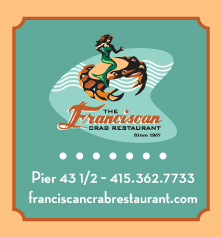CRIME: THE CAPTAIN'S VIEW
Homelessness is not a crime …
Many homeless have been placed in some form of housing, yet there are still thousands that “choose” to live on the streets. These people are what we call “service resistant,” as their street life is by personal choice. Officers engage with these homeless and offer them services, many times with no luck.
We, as a city, need to devote more resources to the Department of Public Health to deal specifically with mental health issues. Mental illness is probably the most prevalent disease in our society (from depression to schizophrenia), yet we still do not discuss it at the level it merits. Many homeless are afflicted with some form of mental illness. Some homeless spend their time working on ways to get money to purchase their unconventional medicine (alcohol, heroin, meth, etc.) in an effort to self-treat their own problems. Some “work” by committing crime, panhandling, stealing, or engaging in other detrimental acts.
The most chronic service resistant are in need of professional mental health care. I contend that we are inhumane to our homeless by the mere fact that (in the most extreme cases) we allow them to continue to live in conditions that the rest of society has difficulty understanding. The monies spent arresting them or sending them off in an ambulance could be better spent working on pursuing conservatorships for the most disabled. Some of these people need to be sent to a mental health facility for the treatment and stabilization of their condition.
When dealing with a chronically homeless individual in your neighborhood, a great resource to call upon is the Homeless Outreach Team – a direct contact person is Jason Albertson ([email protected], 415-203-6643 or 415-203-9963). You can also dial 3-1-1, the number for nonemergency local government services, for help in understanding which city agency to contact.
The City and County of San Francisco has many other resources to deal with homelessness. You may have seen the “MAP” vans driving around the city. MAP (Mobile Assistance Patrol) is a city service that provides transportation for willing substance abusers to a reception area within the detox system. They also do outreach to the chronic homeless and provide transportation to multiple service centers for homeless clients. Other services provided include shelters, short- and long-term housing, shower programs, free meal programs, substance abuse programs, mental health services, free medical clinics, veteran’s assistance, legal help, and more.
Finally, until we, as a society, work to better understand and address the root causes of homelessness and work toward solutions, we the police will continue to handle the many calls for service surrounding homeless issues.
If you want to receive Captain Mannix’s weekly newsletter, e-mail [email protected] . You can also follow Northern Station on Twitter at /northernstation.


